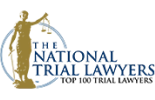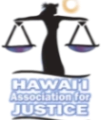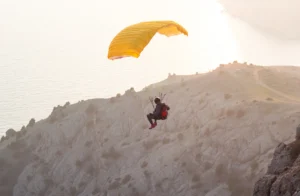
Skydiving over Hawaii’s beautiful islands should be a memorable adventure, not a life-changing tragedy. Yet, for countless people, skydiving accidents result in serious injuries or even wrongful death. Many people don’t realize that, although skydiving carries risk, companies must still adhere to strict safety protocols under Hawaii law and federal aviation regulations. When those responsibilities are ignored, injuries and deaths are not just accidents. They are preventable failures.
At Recovery Law Center, we help injured people and grieving families understand who is liable for a skydiving accident in Hawaii. As experienced Hawaii injury attorneys, we understand how to thoroughly investigate accidents, review FAA and NTSB findings, and hold companies accountable for negligent acts, equipment failures, and unsafe practices.
If your family faces consequences after a skydiving accident, our legal team is ready to help. We offer a complimentary consultation to discuss your legal options and guide you step-by-step, from gathering evidence to pursuing a fair settlement or filing a lawsuit if necessary.
Work With Recovery Law Center After a Skydiving Accident
At Recovery Law Center, we use our real-world experience and local knowledge to help people after serious skydiving accidents in Hawaii. We combine legal skill, clear communication, and personal attention to pursue fair compensation. Following Hawaii’s personal injury laws and federal aviation regulations, we build strong claims based on facts. Here’s how we support you:
Hawaii-Based Personal Injury Lawyers You Can Trust
Our team focuses on personal injury cases, wrongful death claims, and accidents tied to recreational activities like skydiving and scuba diving. We understand Hawaii law and how courts evaluate these cases.
Focused Legal Guidance With Clear Answers
We explain every step in simple terms: from identifying responsible parties to explaining your rights under Hawaii law. Our legal team communicates clearly and stays in contact throughout your case.
Thorough Investigation of Your Accident
We gather evidence early, including FAA and NTSB findings, safety records, medical reports, and witness statements. This helps us build a fact-based legal claim.
No Fees Unless You Win
We offer a free consultation and handle cases on a contingency basis. You pay nothing unless we recover compensation on your behalf.
Support for Your Medical and Personal Recovery
Beyond your legal claim, we help you find support groups, rehabilitation services, and medical care resources for injuries like brain injury or spinal cord injury.
Who is Liable for a Skydiving Accident in Hawaii?
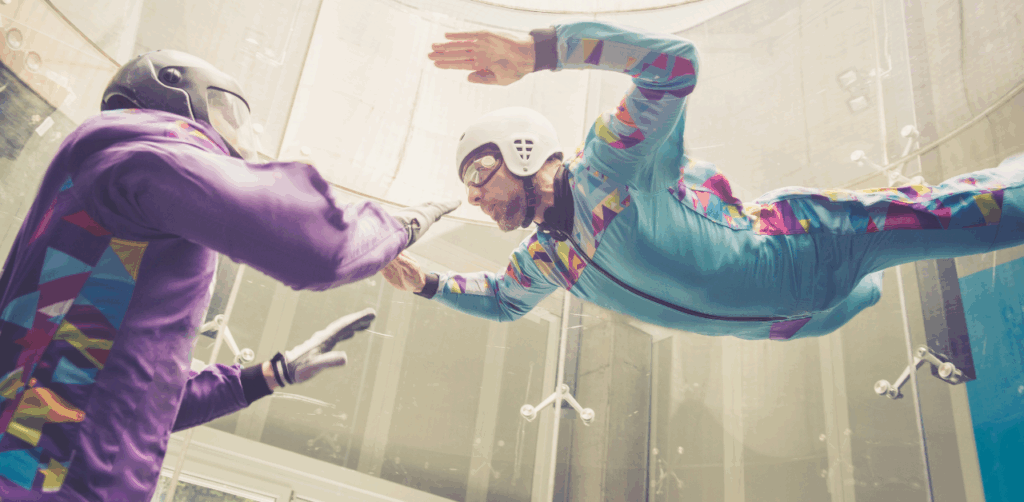
When a skydiving accident happens, identifying the responsible party is critical for your legal claim. Under Hawaii law and federal regulations, several parties may share legal responsibility if their actions contributed to your injuries or your loved one’s death:
- Skydiving Company: The business providing the skydive may be liable if it fails to follow required safety protocols, provides improper training, or hires instructors who are not qualified.
- Instructors and Staff: Individual instructors or jumpmasters could be responsible if they acted carelessly during pre-jump preparation, in-air guidance, or parachute deployment.
- Equipment Manufacturers or Suppliers: If equipment failure contributed to the accident, such as a defective parachute, harness, or automatic activation device, the manufacturer may face a product liability claim.
- Property Owners (Premises Liability): If the property used for the landing zone or takeoff area was unsafe, the landowner might share responsibility under Hawaii’s premises liability laws.
- Other Companies Involved in the Jump: Any third-party businesses involved in organizing or operating the skydiving experience may also be responsible if their negligence contributed to the accident.
- Negligent Acts or Intentional Misconduct: Liability applies when any party fails to meet their legal duties through careless or reckless actions, gross negligence, or intentional violations of safety regulations.
Understanding Hawaii Law and Time Limits
In Hawaii, personal injury law sets strict time limits for filing a legal claim. Victims of skydiving accidents generally have up to two years from the date of the accident to file a lawsuit. If the accident caused wrongful death, surviving family members also face the same two-year time frame to bring a wrongful death lawsuit.
Failing to act within this period may result in the loss of your legal rights entirely. That is why seeking legal help early is critical. At Recovery Law Center, we encourage individuals who have been injured and their families to contact us promptly after the accident. Our law firm can immediately begin gathering evidence, interviewing witnesses, and working with safety professionals to build your case before essential details are lost.
Time is not the only legal issue that affects your case. Hawaii law considers whether a company or instructor acted negligently or failed to follow safety protocols. Our legal team focuses on identifying failures in training, maintenance, or equipment use that may have contributed to your injuries. With quick action and legal help, you can protect your rights and pursue the compensation you deserve.
What Compensation Can You Recover After a Skydiving Accident in Hawaii?
If you or your loved one was injured in a skydiving accident, Hawaii law allows you to pursue financial recovery through a legal claim. At Recovery Law Center, we help clients understand the types of compensation they may seek under personal injury law and wrongful death cases:
- Medical Bills: You can recover costs for emergency treatment, hospital stays, surgery, rehabilitation, and long-term care resulting from serious injuries, such as those to the brain or spinal cord.
- Lost Wages and Future Earnings: If your injuries prevent you from working, you may claim lost wages, missed future earnings, and reduced earning capacity.
- Pain and Suffering: Compensation may cover physical pain and emotional distress resulting from the accident, as well as ongoing treatment.
- Loss of Enjoyment of Life: If injuries prevent you from participating in daily activities or recreational hobbies, you may be entitled to compensation for this life change.
- Funeral Expenses and Death-Related Losses: In wrongful death cases, surviving family members can seek recovery for funeral costs, burial expenses, and loss of companionship and financial support.
- Punitive Damages (When Applicable): If the accident involved gross negligence or intentional misconduct, you may be able to pursue punitive damages to hold the responsible party accountable.
Common Causes of Skydiving Accidents
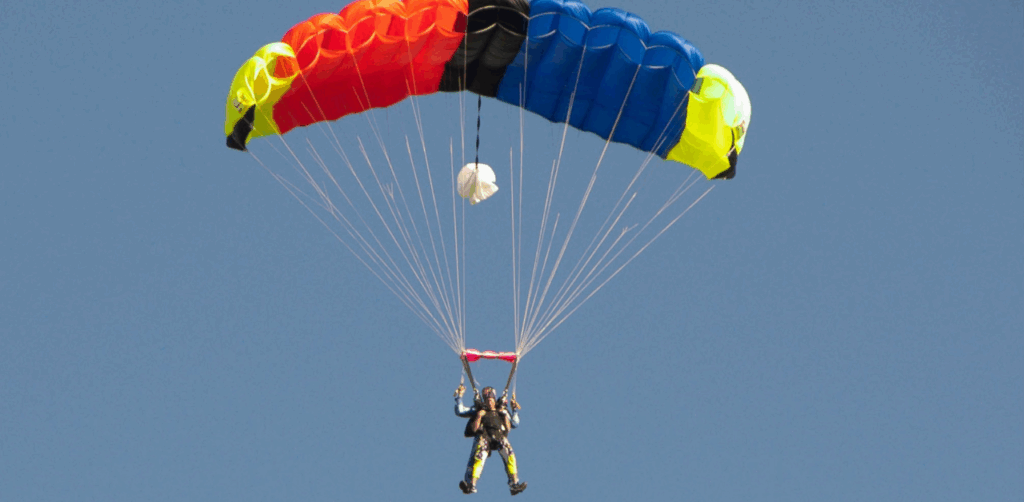
Skydiving accidents in Hawaii often result from avoidable failures. Identifying the cause of the accident is necessary for any legal claim. At Recovery Law Center, we examine these common causes to determine who should be held responsible:
- Equipment Failure: Parachutes, harnesses, or auto-activation devices can malfunction due to design defects, poor maintenance, or improper packing. If equipment failure contributed to the accident, the manufacturer or skydiving company may be liable.
- Instructor or Operator Errors: Instructors and skydiving staff are required to adhere to strict safety protocols established by the FAA. Mistakes in pre-jump training, equipment checks, or guidance during the jump may make them legally responsible.
- Negligent Acts by the Skydiving Company: Failing to follow safety protocols, hiring unqualified instructors, skipping safety briefings, or ignoring weather warnings are examples of negligence that can hold the company accountable.
- Reckless or Intentional Misconduct: If a company or staff member knowingly ignores safety rules, rushes procedures, or operates under dangerous conditions, they may face claims for gross negligence or intentional misconduct.
- Unsafe Premises or Third-Party Negligence: Landowners or other businesses involved may share responsibility if dangerous landing areas or poorly maintained property contributed to the accident.
Federal Aviation Administration and NTSB Investigations
When a skydiving accident occurs in Hawaii, federal agencies such as the Federal Aviation Administration (FAA) and the National Transportation Safety Board (NTSB) typically become involved. These agencies review the accident to determine if companies have violated safety protocols or equipment standards.
The FAA monitors skydiving companies and equipment manufacturers to ensure they follow federal safety guidelines. If the FAA uncovers rule violations, those findings can support a personal injury claim. Likewise, the NTSB investigates serious accidents and issues detailed reports about causes, contributing factors, and potential risks.
At Recovery Law Center, we use FAA and NTSB findings as valuable evidence in your legal case. If federal reports reveal safety failures, ignored warnings, or equipment defects, our legal team can hold the responsible party accountable. Whether it is a skydiving company, instructor, or manufacturer, evidence from these agencies strengthens your compensation claim.
Our law firm stays updated on all FAA and NTSB safety alerts and recommendations. This helps us protect your legal rights and seek the full financial recovery you deserve after a tragic accident.
Steps to Take After a Skydiving Accident in Hawaii
If you or someone you know is involved in a skydiving accident in the Hawaiian Islands, there are clear steps to follow:
- Seek medical help immediately. Even if injuries seem minor, hidden issues like brain injury or spinal cord injury need prompt treatment.
- Follow all safety protocols at the scene. Keep your body in the position the instructor was teaching and follow any direct instructions from emergency personnel.
- Document the accident thoroughly. Note the weather, equipment used, times, location, and people involved. Take photos of gear, gear tags, and injury locations.
- Keep all records: You need to keep medical bills, treatment notes, lost wage records, and any correspondence with the skydiving company.
- Call a qualified personal injury attorney: At Recovery Law Center, we will assess whether you have a legal claim, explain how defective equipment or negligence may apply, and secure potential evidence from FAA or NTSB investigations.
- Start your legal claim quickly. We can prepare to file a personal injury or wrongful death lawsuit in time. If needed, we will pursue legal action in court.
Wrongful Death Lawsuit in Hawaii
When a skydiving accident causes death, surviving family members may have the right to file a wrongful death lawsuit. Under Hawaii law, these cases allow families to pursue compensation. Wrongful death cases can be complex. The liable party may be a skydiving company, equipment manufacturer, property owner, or even a combination of companies involved in the activity. The legal process often requires gathering technical evidence from FAA reports, NTSB findings, and company training manuals.
At Recovery Law Center, we understand that a tragic accident leaves families grieving and overwhelmed. Our legal team assumes the responsibility of investigating the accident, identifying the responsible party, and pursuing legal action on your behalf. We work closely with families, explaining every step of the process to ensure transparency.
Filing a wrongful death lawsuit can also help prevent similar accidents by holding negligent parties accountable for their actions. If you have lost a loved one in a skydiving accident, contact our law firm today for a free consultation. You have up to two years to file a claim under Hawaii law.
Personal Injury Law for Skydiving Accidents
Under Hawaii’s personal injury law, injured skydivers may seek compensation if negligence played a role in their accident. To build a strong case, four main elements must be proven: duty of care, breach of duty, causation, and damages.
Instructors and skydiving companies owe a duty of care to customers. They must follow safety protocols, maintain equipment, and provide proper training to ensure the safety of all personnel. If they fail to meet these responsibilities, and that failure leads to injury, they may be held legally responsible.
Damages include financial losses, such as medical bills and lost wages, as well as non-economic losses, including pain and suffering. Cases involving severe injuries like brain injuries or spinal cord injuries may require claims for future medical treatment or long-term care.
At Recovery Law Center, we handle personal injury cases involving recreational activities across the Hawaiian Islands. Our legal team works to gather evidence such as accident reports, maintenance records, and FAA or NTSB findings to prove negligence. Each case is unique, but our goal remains consistent: to help injured people seek the compensation they deserve.
Skydiving companies may argue that inherent risk prevents legal claims. However, under Hawaii law, negligence overrides waivers and risk assumptions in many personal injury cases.
Medical Treatment After a Skydiving Accident
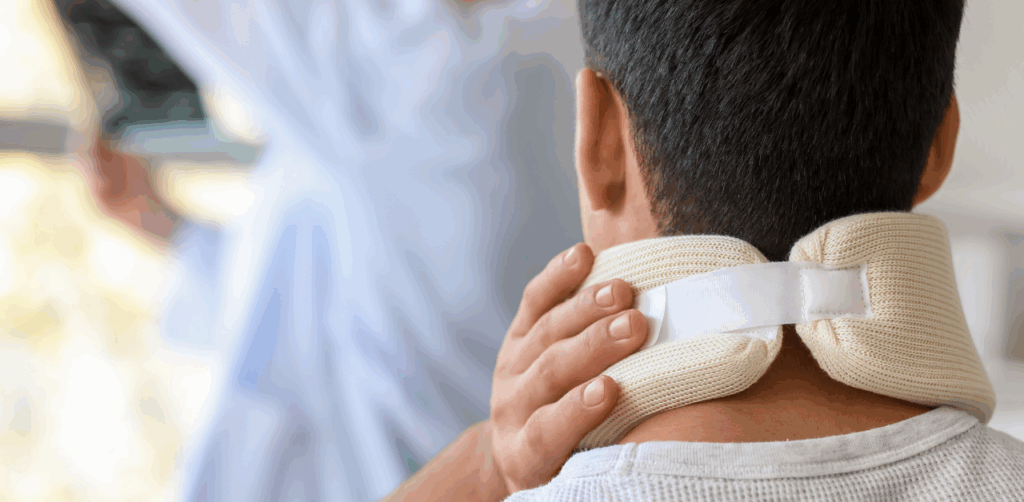
After a skydiving accident, getting medical treatment is not only critical for your health but also for your personal injury case. Injuries from skydiving accidents are often serious. Victims may suffer from severe injuries that need long-term care, such as:
- Broken bones
- Traumatic brain injuries
- Spinal cord injuries
- Internal injuries
Medical records help document your injuries and link them directly to the accident involved. Emergency room visits, surgeries, physical therapy, and medications all create costs that may be recovered through a legal claim. At Recovery Law Center, we ensure that all past, current, and future medical bills are included when seeking compensation for clients.
In cases of life-altering injuries like paralysis or cognitive impairment, costs can stretch into millions of dollars over a lifetime. Our legal team works with doctors and specialists to understand your medical needs and include them in your claim. Rehabilitation, home modifications, and ongoing treatment may all be necessary.
If your injuries prevent you from working, claims may also include lost wages and future lost earning capacity. With legal assistance, injured parties can safeguard their right to a full financial recovery following a skydiving accident.
Fair Settlements vs Going to Trial
In most skydiving accident cases, insurance companies and the companies involved prefer to settle rather than go to trial. Settlements can provide faster compensation for medical bills, lost wages, and other damages. However, many insurers initially offer less than what injured parties need for full recovery.
At Recovery Law Center, we prepare every case for trial from day one. This strategy demonstrates to the other side that we are prepared to take the matter to court if necessary. We work closely with our injured clients to clearly explain settlement offers and ensure they understand the details. Together, we determine whether a fair settlement has been offered or if pursuing legal action in court is the better course of action. Our goal is simple: secure the compensation you deserve.
While many cases resolve without trial, preparing fully for court often leads to better settlement results. Whether negotiating a settlement or presenting your case in front of a jury, Recovery Law Center stays focused on your best outcome. We protect your legal rights through every stage of your personal injury case.
Call Us for Clear Answers and Personalized Legal Support After a Skydiving Accident in Hawaii
At Recovery Law Center, we believe that clear guidance and meticulous legal work can help injured individuals and their families find a way forward. Our focus is straightforward: identify those who failed to meet their safety responsibilities, gather the necessary evidence to support your claim, and work towards a fair financial recovery. Every case is unique, which is why we listen closely to your story and create a tailored legal plan that fits your specific situation, rather than adopting a one-size-fits-all approach.
If you or someone close to you has been affected by a skydiving accident, please contact us today to schedule a complimentary online consultation for a free case review.








